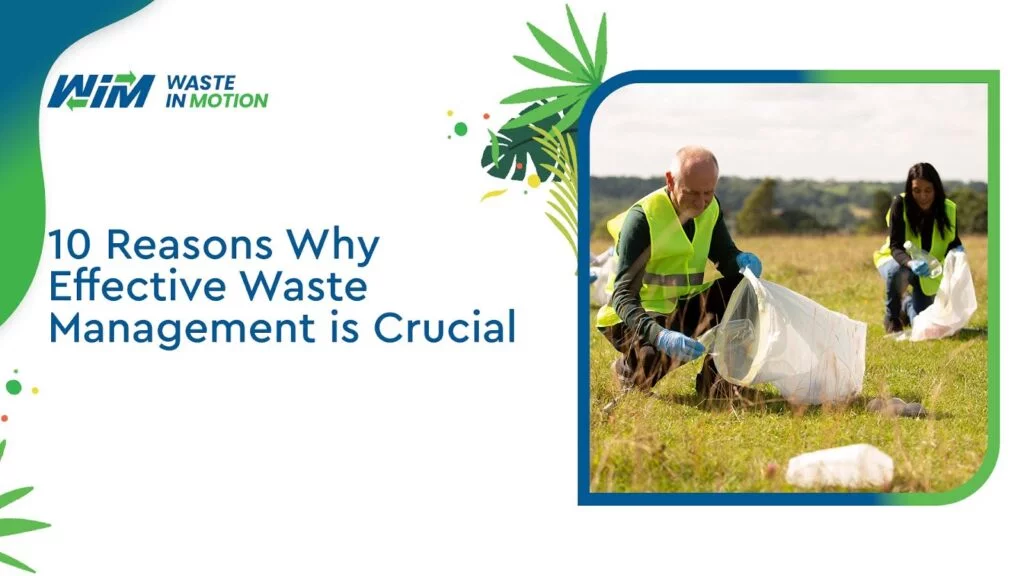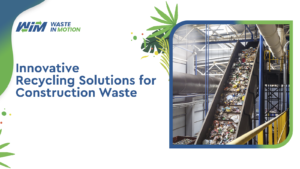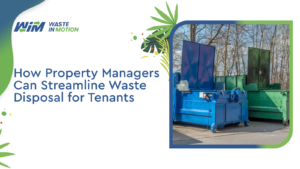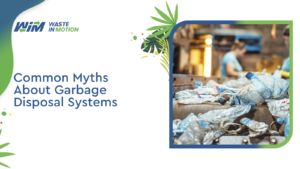Effective waste management is the key to ensuring a healthy environment, community health, and natural resource preservation. The generation rate of waste materials is gradually increasing in the world; therefore, effective practices are needed for sustainability.
This blog explores the top ten reasons why effective waste management is important.
Table of Contents
ToggleEnvironmental Protection
One of the most important benefits of waste management is its positive role in environmental protection. The proper disposal of waste can reduce pollution which has devastating effects on land, water, and air. By effectively managing waste, we can minimize harmful emissions into the environment, preserve ecosystems, and protect biodiversity.
Resource Preservation
Reducing waste and encouraging waste recycling are essential to preserving raw materials. By sorting recyclables, we can save natural resources and lower the demand for new raw materials. Waste recycling helps to ensure that valuable materials are reused, reducing the strain on the planet’s finite resources.
Energy Efficiency
Waste management practices reduce the energy required to produce new raw materials and thereby improve energy efficiency. Recycling and reusing materials saves energy significantly compared to all-new productions. Furthermore, waste-to-energy technologies can convert waste into energy, support renewable energy sources and further improve energy efficiency.
Reduction of Greenhouse Gas Emissions
One of the main causes of climate change is greenhouse gas emissions, which can be reduced with proper waste management. Methane is a powerful greenhouse gas that can be reduced by encouraging recycling and composting, as well as minimizing the quantity of garbage that is dumped in landfills. To mitigate climate change and protect the environment, a thorough waste management plan must be implemented.
Health and Safety
Ensuring safety and safeguarding the public’s health depends on efficient waste management. Improper waste disposal can lead to the spread of diseases and to the creation of dangerous living conditions. By properly managing waste with techniques such as using Molok containers, we can prevent water pollution, reduce exposure to harmful chemicals, and maintain clean and safe environments for communities.
Aesthetic Improvements
Effective waste management minimizes visual pollution and improves community cleanliness. A well-kept environment can enhance residents’ quality of life and is more aesthetically pleasing. Adopting efficient waste management techniques, like renting front-load dumpsters and roll-off bins, contributes to the cleanliness and litter-free environment of public areas.
Economic Benefits
Efficient waste management can make significant financial gains, including cost savings and job creation. There are lots of job opportunities in the waste management sector, such as collection, sorting, recycling, and disposal. Furthermore, recycling can lower the price of producing new goods and waste disposal. By streamlining waste handling procedures and reducing waste-related costs, administrators can save money by putting in place a waste management plan.
Regulatory Compliance and Ethical Responsibility
Adhering to waste management regulations is crucial for avoiding legal penalties and fines. Governments have established regulations to ensure that waste is managed responsibly. A proper waste management plan helps businesses comply with these regulations, protecting them from potential legal issues. Beyond compliance, responsible waste management reflects a commitment to ethical environmental practices, fostering trust and a positive reputation within the community.
Sustainable Development
Waste management is the cornerstone of sustainable development and supports the long-term sustainability of the environment and businesses. Waste management contributes to a sustainable future by reducing waste, preserving resources, and minimizing pollution. Businesses that give priority to waste management tend to improve their reputation, attract environmentally conscious consumers, and promote sustainable cultures.
Encouraging the Circular Economy
A circular economy—one in which resources are recycled, reused, and repurposed—is facilitated by efficient waste management. This approach also lowers the demand for new resources. Waste management promotes a system in which waste is reduced and products are made to be recycled and reused by encouraging the sustainable use of resources. This strategy not only minimizes the impact on the environment and promotes economic growth, but it also conserves resources. Visit Waste in Motion to find out more about eco-friendly waste solutions.
Community Engagement and Accountability
Effective waste management is significantly boosted by community engagement and public participation. When communities are involved in waste management initiatives, recycling rates improve, and better waste disposal techniques are adopted. Educational programs and activities highlighting waste management’s importance encourage people to adopt sustainable behaviors. This collective effort promotes accountability and fosters a group commitment to creating a more sustainable world.
Conclusion
To sum up, efficient waste management is essential for safeguarding public health and safety, preserving the environment, reducing resource consumption, sustainable development, a functioning circular economy, and increasing energy efficiency. We can make the planet cleaner, healthier, and more sustainable by promoting a circular economy and involving communities. Adopting efficient waste management techniques is crucial to guaranteeing future generations a brighter future.






